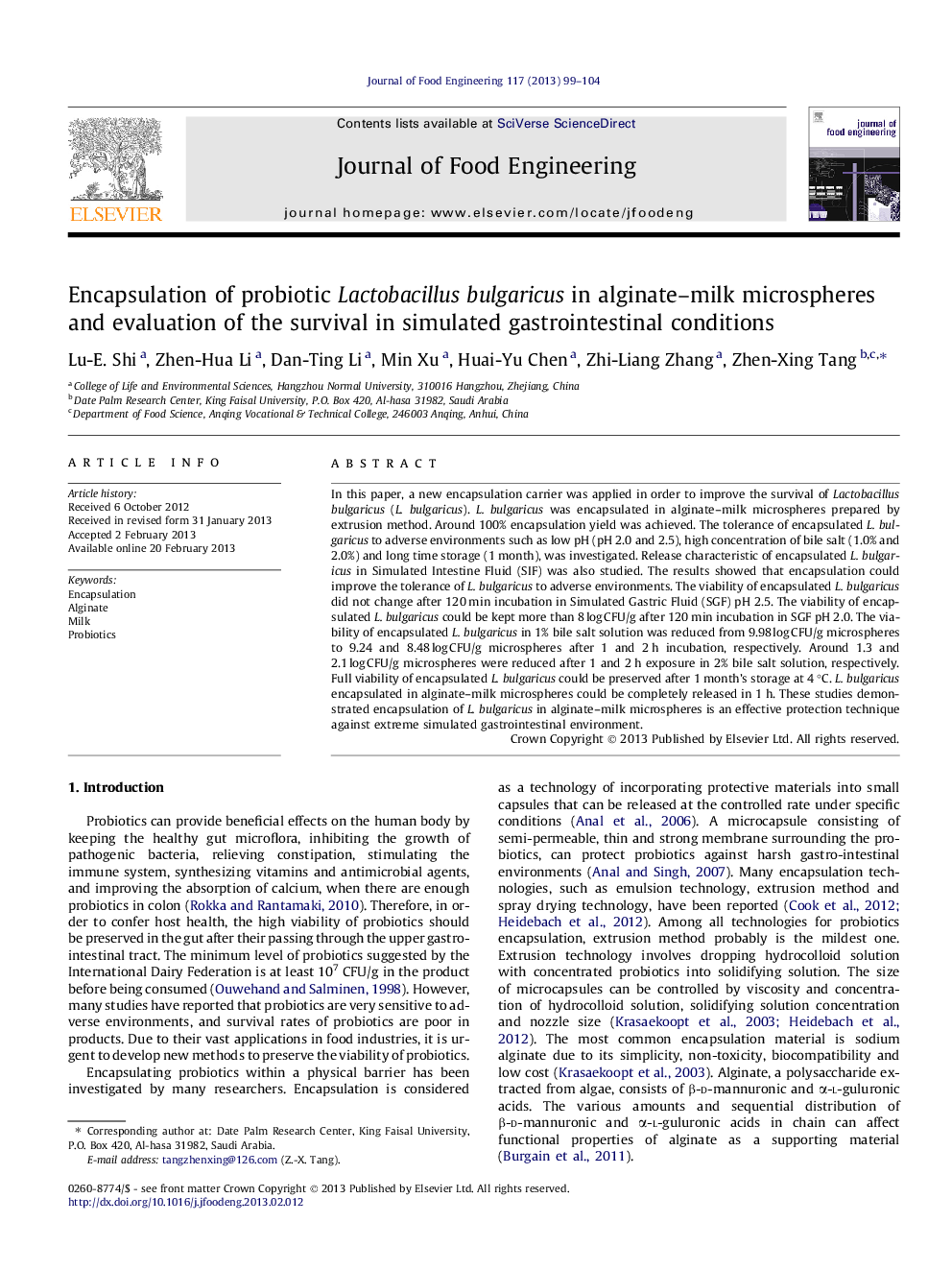| Article ID | Journal | Published Year | Pages | File Type |
|---|---|---|---|---|
| 223537 | Journal of Food Engineering | 2013 | 6 Pages |
In this paper, a new encapsulation carrier was applied in order to improve the survival of Lactobacillus bulgaricus (L. bulgaricus). L. bulgaricus was encapsulated in alginate–milk microspheres prepared by extrusion method. Around 100% encapsulation yield was achieved. The tolerance of encapsulated L. bulgaricus to adverse environments such as low pH (pH 2.0 and 2.5), high concentration of bile salt (1.0% and 2.0%) and long time storage (1 month), was investigated. Release characteristic of encapsulated L. bulgaricus in Simulated Intestine Fluid (SIF) was also studied. The results showed that encapsulation could improve the tolerance of L. bulgaricus to adverse environments. The viability of encapsulated L. bulgaricus did not change after 120 min incubation in Simulated Gastric Fluid (SGF) pH 2.5. The viability of encapsulated L. bulgaricus could be kept more than 8 log CFU/g after 120 min incubation in SGF pH 2.0. The viability of encapsulated L. bulgaricus in 1% bile salt solution was reduced from 9.98 log CFU/g microspheres to 9.24 and 8.48 log CFU/g microspheres after 1 and 2 h incubation, respectively. Around 1.3 and 2.1 log CFU/g microspheres were reduced after 1 and 2 h exposure in 2% bile salt solution, respectively. Full viability of encapsulated L. bulgaricus could be preserved after 1 month’s storage at 4 °C. L. bulgaricus encapsulated in alginate–milk microspheres could be completely released in 1 h. These studies demonstrated encapsulation of L. bulgaricus in alginate–milk microspheres is an effective protection technique against extreme simulated gastrointestinal environment.
► L. bulgaricus was successfully encapsulated in milk–alginate microspheres. ► Higher survival rates of encapsulated L. bulgaricus were achieved in comparison to free cells. ► Extrusion method offers an effective way for encapsulation of L. bulgaricus.
